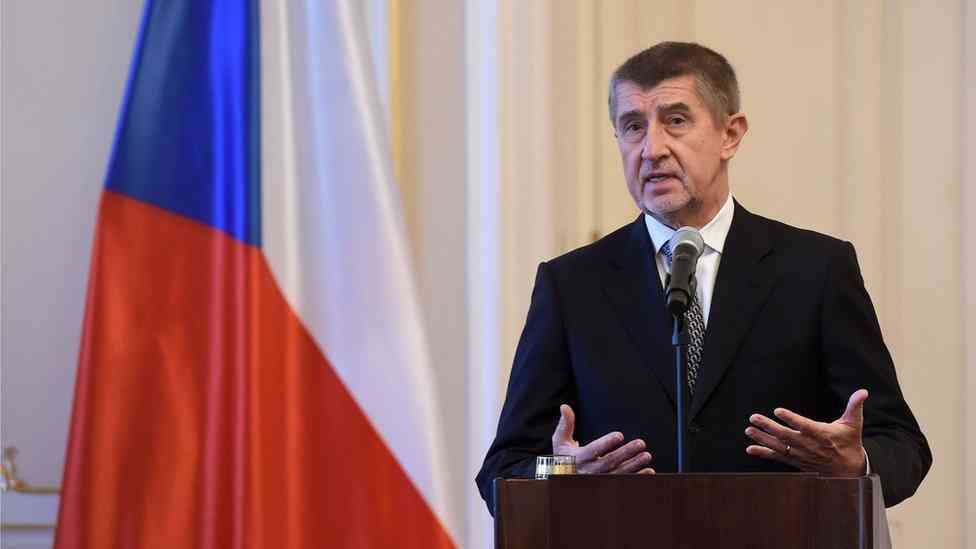
“I wish you a world without Babiš. Forget about Babiš. Try to live without Babiš,” said former Czech prime minister Andrej Babiš last Saturday after his campaign for the presidency failed to convince the voters. “Stop waking up in the morning with hatred towards Babiš and falling asleep with hatred towards Babiš.”
Just your standard billionaire populist having a massive public sulk after suffering political rejection, it would seem, and he certainly deserved to be rejected. It was a dirty, bad-tempered campaign in which a fake website and e-mails hosted by Russia’s Yandex server falsely declared that Babiš’s opponent, retired army general Petr Pavel, had died.
Babiš denied any involvement in that deceit, but his campaign tried to drum up fear of war between Nato and Russia and stressed that he was not aligned with the “reckless” West.
Not only did he oppose Nato sending weapons to Ukraine to resist the Russian invasion, he said. Even if Russia invaded fellow Nato member Poland, he would not send Czech troops to help defend it (although it has a treaty obligation to do so under the Nato Charter).
“I am not going to drag the Czechs into war,” read the posters that Babiš plastered all over the country. “I’m a diplomat, not a soldier.”
But he is actually neither of those things, and most Czech citizens saw right through him.
Of course, they did. Czechs lived under Communist rule for more than 40 years and when they tried to throw it off in 1968, Moscow sent troops in to crush the peaceful revolt by force. That hasn’t been forgotten, and they can clearly see the analogy with Russia is doing in Ukraine today.
So 57,3% of the voters cast their ballots for the pro-Nato candidate, Petr Pavel. He will replace the current, rather pro-Russian president, Milos Zeman, in March, and the Czech Republic’s loyalty to its Nato alliance is assured. But what were the other 42,7% of Czech voters thinking?
- Lukaku becomes the most expensive player ever
- Lukaku becomes the most expensive player ever
- Ukraine's Zelenskiy warns Europeans to brace for bleak winter
- Ben Stiller and Sean Penn latest Americans banned from Russia
Keep Reading
They were not thinking: “Poor old Russians, under attack again by the evil forces of Nato. No wonder they had to invade Ukraine to overthrow the wicked Jewish Nazis who rule that stolen Russian territory and wage a genocide against its innocent Russian-speaking people.”
There are very few “useful idiots” left among the Czech population after several generations of close and mostly unpleasant contact with the ways of the Russian state. What most of the people who voted for Babiš were really thinking was: “Sorry about the Ukrainians, but I don’t want my children to die in a nuclear war.”
And they were right too.
The Russian invasion of Ukraine was stupid and criminal, and it must be resisted. The doctrine of nuclear deterrence that is supposed to prevent that resistance from causing escalation into a nuclear war is necessary, but unreliable. The problem is war. Not just this or that war, but the entire institution.
Wars always used to be about territory, and they are older than mankind. Most animals defend their territories one way or another, and predators who live in groups generally defend them by force. That includes early human beings: practically all hunter-gatherer groups made alliances and fought wars to protect or even expand their territories.
It made sense for them, and it still made sense for the people who began living in larger groups called civilisations, because territory was the only real source of food, wealth, and of power. We built ever bigger and more complex military institutions to protect and expand our lands, and the societies we live in today were the winners in that process.
However, for the past two centuries, since the industrial and scientific revolutions, land has no longer been the principal source of wealth and power. Moreover, the level of destruction is so high that even the winner rarely makes a profit in the wars of the 20th and 21st centuries.
The military institutions should therefore be shrinking by now, but they are not. The number of casualties has dwindled over the past 75 years and no nuclear weapons have been used, but we are suffering from a bad case of cultural lag.
It’s not that people are unaware of the problem. The effort to replace the military “balance of power” with civilian international institutions that would arbitrate between countries and prevent aggression began after the two world wars of the last century (the League of Nations and the United Nations) and continues today, but progress is very slow.
And what has all this to do with the outcome of the Czech election? Just that the arguments of the two sides, however partial and distorted they may be, are just one more round in a debate that is already more than a century old, and still nowhere near a conclusion. — This piece is also from Gwynne Dyer.






